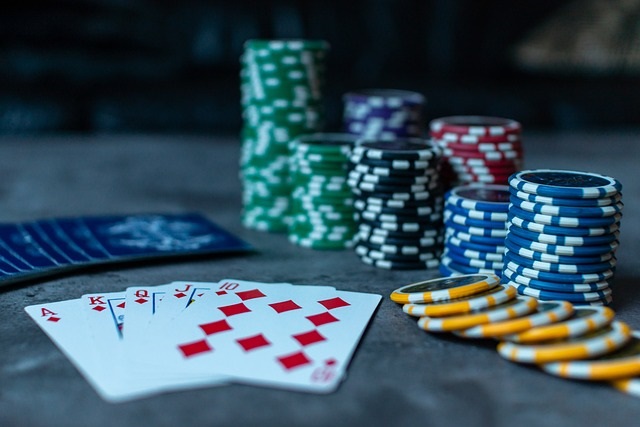Even the most disciplined professionals experience losing streaks that test their confidence and composure. Whether they compete in poker, blackjack, or esports, prolonged downturns can challenge even the strongest minds. What separates top players from the rest isn’t the absence of failure, but their ability to manage it strategically and psychologically. Understanding how professionals handle these phases can help anyone develop a more balanced mindset when facing setbacks in competitive environments.
Developing a Framework for Mental Stability
Professional players rely on structured mental habits that prevent emotion from dictating their decisions. They follow defined routines that include reflection after each session, journaling their thoughts, and reviewing gameplay objectively. These systems help them detect early signs of frustration or distraction, allowing logical adjustments before mistakes multiply.
A clear structure reduces impulsive behaviour. Instead of chasing losses, professionals step back to identify whether their play remains consistent with their long-term strategy. This disciplined approach ensures that every decision is grounded in reason, not emotion.
Using trusted gaming environments also contributes to stability. Sites such as https://casinozondercruks.co.uk/new-online-casinos/ provide an up-to-date list of new online casinos that are safe, pay out quickly, and offer attractive bonuses. Engaging with platforms that emphasise security and transparency helps players focus on performance rather than worry about legitimacy. Confidence in the gaming environment supports better concentration and a calmer state of mind during challenging streaks.
Why Mental Resilience Matters in Competitive Play
Mental resilience enables players to distinguish between short-term outcomes and long-term goals. In poker or any other skill-based game, variance ensures that losing streaks will occur, regardless of one's ability. The most successful professionals accept this reality rather than resisting it. They recognise that performance should be judged by decision quality, not temporary results.
When losses start to accumulate, the natural reaction is to question one’s skill or strategy. This self-doubt can quickly lead to hesitation or overcorrection. Professionals combat this by viewing each session as part of a larger picture. They remind themselves that short-term losses do not erase long-term competence. This perspective prevents emotional fatigue and maintains steady confidence even when variance seems unforgiving.
Developing resilience also involves identifying emotional patterns that emerge during slumps. Professionals observe when they become risk-averse, frustrated, or overly aggressive. By noting these shifts, they can consciously redirect their mindset back to strategic focus. Maintaining emotional awareness ensures that their play remains driven by logic rather than impulse.
Using Bankroll Management as Emotional Protection
Bankroll management is one of the strongest mental safety nets available to professional players. It acts as a psychological buffer, allowing them to absorb variance without fear of financial collapse. When players set strict limits on how much they risk per session or per stake level, they eliminate the anxiety that often accompanies consecutive losses.
Professionals view bankroll rules as non-negotiable. They plan for downswings by keeping a financial cushion that allows them to continue playing confidently even during rough periods. This structure removes the pressure to recover losses quickly and prevents emotional overreactions such as chasing results or raising stakes impulsively.
Adjusting to lower stakes during a losing streak can also be a valuable reset. Doing so doesn’t indicate weakness but discipline. It helps players rebuild momentum and confidence in a less stressful environment. This step reinforces stability, keeping focus on quality play rather than emotional recovery.
Cognitive Reframing: Turning Losses into Learning
One of the most powerful mental tools professionals use is reframing. Instead of seeing losses as failure, they treat them as data points for improvement. This shift in mindset turns a negative experience into an opportunity for growth.
Players review their decisions rather than their outcomes, asking whether they acted in line with their strategy. If a loss resulted from a poor decision, it becomes a lesson. If it came from pure chance, they accept it as part of the game. This logical differentiation allows them to maintain emotional distance from short-term results.
Adopting this analytical approach builds long-term confidence. It prevents negative emotions from dominating future decisions and promotes continuous learning. Losing streaks become temporary challenges rather than threats to self-belief.
Creating Recovery Routines Between Sessions
Professional players understand that physical and mental recovery are interdependent. Consistent sleep, regular exercise, and balanced nutrition improve focus and reduce stress, allowing the mind to reset after difficult sessions. Simple breathing techniques or mindfulness routines also help clear residual frustration before returning to play.
Another essential recovery method involves structured reflection. After each session, players assess whether their behaviour aligned with their goals. Writing down emotional triggers or tactical errors allows them to approach future sessions with greater awareness. This self-assessment prevents the build-up of tension that can otherwise compound over time.
Some professionals choose to limit volume temporarily after tough runs. Reducing the number of hours spent playing can refresh motivation and restore perspective. Taking a planned step back often leads to stronger performance when returning.
Recognising Mental Health Warning Signs
Mental fatigue can manifest subtly, and experienced players learn to recognise early indicators of burnout. Persistent frustration, difficulty sleeping, or loss of motivation are often the first signs that rest is needed. Ignoring these symptoms risks long-term damage to focus and emotional balance.
Physical symptoms like headaches or muscle tension can also reflect underlying mental strain. When such signals appear, professionals prioritise rest, physical activity, or external support. Many rely on trusted peers or coaches to discuss challenges, helping to normalise the emotional ups and downs of competition.
Recognising when to pause is a sign of strength, not weakness. Taking short breaks or reducing intensity helps players return with clarity and renewed determination. Maintaining well-being ensures longevity in competitive play.
Strengthening Your Mindset for the Long Game
Handling losing streaks with composure and self-awareness is the hallmark of a true professional. Building resilience, managing bankrolls responsibly, and maintaining balance between play and rest are essential for long-term success. Every setback presents an opportunity to refine strategy, improve focus, and reinforce emotional discipline.

